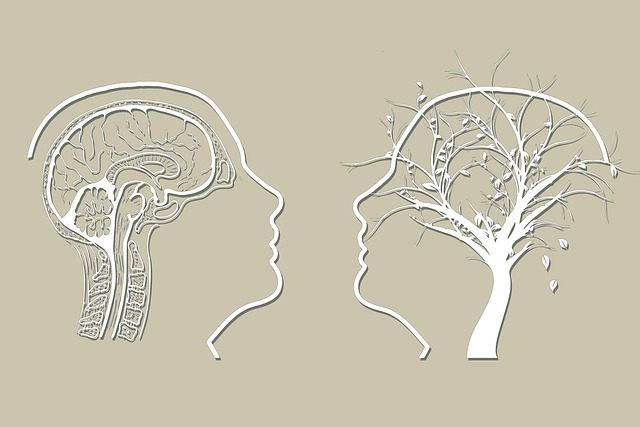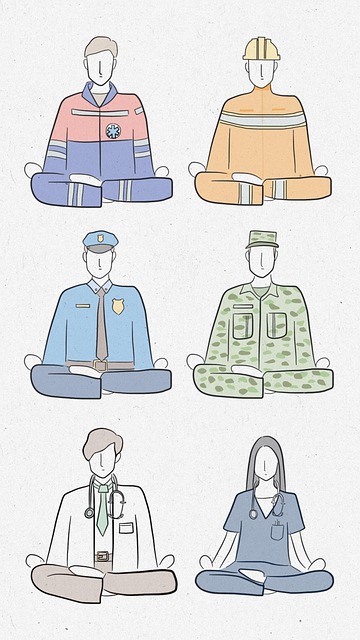The Parker Family Counseling Therapy approach prioritizes a holistic, supportive family environment to build resilience through understanding dynamics, empathy, and structured exercises like Social Skills Training and RFM (Recovery, Flexibility, Mastery) framework. This method integrates cultural sensitivity, empathy building, open communication, and mental wellness journaling to strengthen bonds, enhance mental health, and prevent burnout. Success is measured through client feedback, progress notes, and outcome measures, ensuring tailored strategies for long-term positive outcomes.
Resilience is a cornerstone of family well-being, especially in navigating life’s challenges. This article explores the powerful combination of Resilient Families Model (RFM) and resilience-building exercises, grounded in the proven Parker Family Counseling Therapy approach. We’ll delve into how this framework identifies and overcomes barriers, strengthens family bonds, and fosters a supportive environment. By examining successful implementations and evaluation methods, we aim to provide insights for professionals using the Parker Family Counseling Therapy techniques.
- Understanding Resilient Families: The Parker Family Counseling Therapy Approach
- Identifying and Overcoming Challenges: RFM Framework in Action
- Implementing Resilience-Building Exercises for Strengthening Family Bonds
- Measuring Success: Evaluating the Impact of RFM Implementation
Understanding Resilient Families: The Parker Family Counseling Therapy Approach

The Parker Family Counseling Therapy Approach offers a unique and holistic perspective on fostering resilience within families. This method recognizes that building resilience is not merely an individual process but one that significantly benefits from a supportive family environment. The approach emphasizes understanding each family’s dynamics, strengths, and challenges as a crucial step in empowering them to navigate life’s storms with greater adaptability. By focusing on the interconnectedness of family members, counselors using this technique help identify and strengthen bonds, encouraging open communication and effective problem-solving skills.
One of the key components of the Parker Family Counseling Therapy is incorporating Social Skills Training to enhance family interactions. This involves teaching families strategies for active listening, conflict resolution, and empathy building, which are essential in cultivating a resilient support system. Additionally, they prioritize Cultural Sensitivity in Mental Healthcare Practice, ensuring that each family’s unique cultural background is respected and integrated into the therapy process. Empathy Building Strategies are also a core element, encouraging family members to walk in each other’s shoes, fostering deeper understanding and compassion—crucial elements for building resilience together.
Identifying and Overcoming Challenges: RFM Framework in Action

Identifying and overcoming challenges is a crucial step in implementing resilience-building exercises, and the RFM (Recovery, Flexibility, Mastery) framework offers a structured approach to navigate these obstacles. Parker Family Counseling Therapy emphasizes this methodology, focusing on three key aspects to help individuals and communities build mental fortitude. First, recovery involves acknowledging and processing past traumas or stressful events that may hinder growth. This step is essential for emotional healing processes, as it allows individuals to confront and release bottled-up emotions, fostering a sense of calm and resilience.
Once recovery is achieved, the framework shifts to flexibility, encouraging adaptability in the face of adversity. Mental health professionals can assist clients in identifying coping mechanisms that promote resourcefulness during challenging times. By understanding individual strengths and weaknesses through risk assessment for mental health professionals, burnout prevention strategies can be tailored, ensuring a more sustainable and balanced approach to life’s ups and downs. This flexibility is vital for building resilience, enabling individuals to navigate unforeseen circumstances with grace and determination.
Implementing Resilience-Building Exercises for Strengthening Family Bonds

Implementing Resilience-Building Exercises for Strengthening Family Bonds can be a game-changer in fostering healthier relationships and enhancing overall mental wellness. At Parker Family Counseling Therapy, we recognize that families are the cornerstone of our communities, and equipping them with tools to navigate life’s challenges is paramount. Our approach focuses on engaging in activities that promote open communication, empathy, and problem-solving skills, all essential components for building resilience.
By incorporating these exercises into family routines, parents and children can learn to manage stress together, fostering a supportive environment. This proactive strategy, often integrated as part of Burnout Prevention Strategies for Healthcare Providers and Risk Management Planning for Mental Health Professionals, encourages the expression of emotions and strengthens bonds. Mentoring families through Mental Wellness Journaling Exercise Guidance allows them to reflect on experiences, process emotions, and identify coping mechanisms, ultimately contributing to a more resilient family dynamic.
Measuring Success: Evaluating the Impact of RFM Implementation

Measuring success is a vital aspect of implementing RFM (Resilience, Flexibility, and Mindfulness) exercises, especially when considering the long-term benefits for individuals’ mental health. Parker Family Counseling Therapy has successfully utilized RFM techniques to enhance clients’ resilience and overall well-being. By evaluating the impact of these interventions, therapists can ensure that their approach aligns with the latest research in mental health policy analysis and advocacy.
The effectiveness of RFM can be assessed through various methods, such as client feedback, progress notes, and outcome measures. Compassion cultivation practices have shown remarkable results in reducing stress and anxiety levels, leading to improved emotional regulation skills. These evaluations allow therapists to tailor their strategies, incorporating Mind Over Matter principles to foster a more robust sense of resilience among clients. Regular assessments enable professionals to track individual growth and make informed decisions regarding treatment adjustments, ultimately contributing to better mental health outcomes.
The implementation of the Resilient Families Model (RFM), grounded in the Parker Family Counseling Therapy approach, offers a transformative path for families seeking to strengthen their bonds and overcome challenges. By identifying key areas through the RFM framework, families can engage in targeted resilience-building exercises that foster open communication, enhance problem-solving skills, and promote emotional well-being. Evaluating the impact of RFM implementation reveals improved family dynamics, increased resilience, and lasting positive changes, making it a valuable tool for professionals supporting familial resilience.














